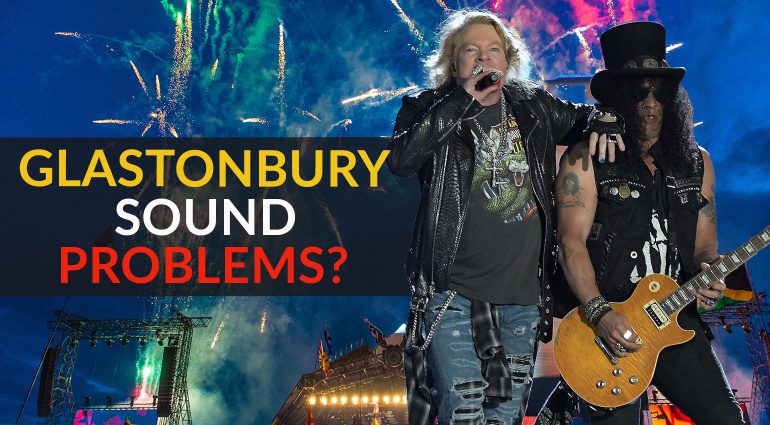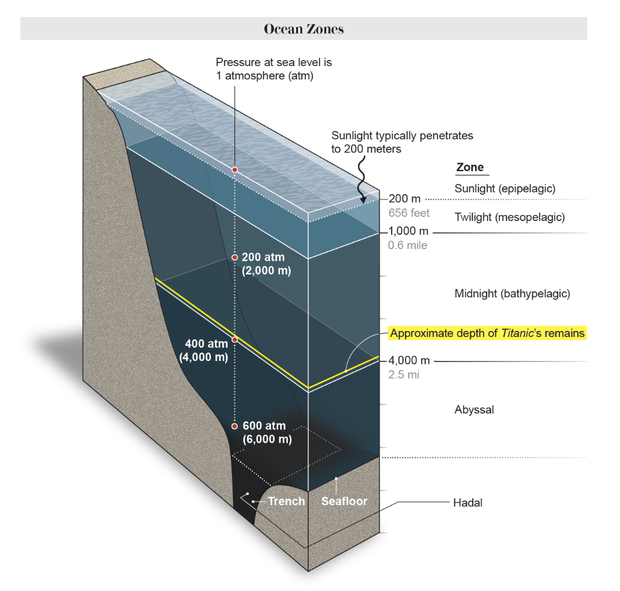Glastonbury sound problems have been as newsworthy this year as the acts themselves. TV viewers have complained of poor mixes, with Guns and Roses wading in and blaming the BBC directly. As ever, there’s more to this story than you might expect…
Glastonbury Sound Problems
This year’s Glastonbury Festival has sparked more headline controversy than any year I can remember. Billy Nomates received the ire of viewers for daring to use backing tracks. Most notable, however, has been the unprecedented amount of complaints over the quality of broadcast sound mixes.
Most prominently, Guns N’ Roses live agency publicly laid the blame for the show’s poor sound at the feet of the BBC itself. So what’s going on? The BBC is one of the oldest and most respected broadcast companies in the world. Arguably, the BBC is responsible for the concept of the TV outside broadcast; the 1948 Summer Olympics stands as a significant broadcast milestone.
I’m a former OB engineer and an experienced FOH engineer; as a result, members of the Gearnews team persuaded me to dig into this topic and try and find out, what gives? Following a few conversations with friends in the industry, I can present the following evidence…
Mix Mastery
The sound mix you hear at home is a completely separate mix from that provided to those in the audience at Glastonbury. Each band will typically have their own Front Of House engineer to mix the show for the audience. The FOH engineer will have the ultimate decision upon what microphones are used, where they’re placed etc etc.
The BBC then takes a “stage split” of the input channels. This in itself is a massive task, as those channels may arrive via analogue, MADI 48, MADI 96, Dante, and AES 50. All in all, the operation of just getting all those feeds over to the broadcast truck is a significant one indeed.
From there, a team of BBC mix engineers works in shifts to mix each band. An SSL c200 console in conjunction with 64 channels of Waves SuperRack is employed for the OB mix. It’s a colossal logistical undertaking and something that only a company the size of the BBC would be able to take on.
Quality Control
Try and imagine mixing your album, while over 50 million people are listening to you putting your mix together. Oh, and you’re not allowed to go back and re-do it, it has to stay like that forever! That’s very much the analogy of mixing broadcast sound at a festival! You get no sound checks, no second chances, just take a deep breath and go!
So what processes are in place, for a band, to ensure that your mix goes out as intended? Well, I can speak from first-hand experience that the BBC does not allow any 3rd party engineers to mix for broadcast. I was once asked to accompany an artist to a Maida Vale session as an “advisor” to the mix. I must have done something right, as I was actually permitted to mix the vocal effects for the engineer!
It appears, for example, that Giles Martin was present in one of the broadcast trucks, to sign off Elton John’s mix. I would not be surprised to hear if something similar occurred for other large acts. But what about Guns N’ Roses?
Blame the Engineer
“If a band sounds great, everyone praises the band as being great musicians. If a band sounds bad, then they’ll blame the engineer”. This is a sage phrase that I’ve held close to me as a live engineer! Ultimately, the live mix engineer can only work with what they’re given. And here lies the grey area in the whole topic. For example, if a vocalist isn’t providing a good, consistent level into the microphone, then there’s only so much a mix engineer can do. There’s no plugin that can turn a lacklustre performance into a great one!
Equally, there are possibly some technical issues at play; Guns N’ Roses press agency mentioned sound issues on UHD TVs. This points towards potential issues with the 5.1 surround mix of Glastonbury. My sources suggest that all the live mixes originated as stereo mixes. The surround mixes were then likely constructed using a mixture of ambient microphones intended to give additional crowd ambience. I have rigged similar microphone setups for outside broadcasts myself, so this would hold precedence.
I’ve seen numerous statements across social media that “the audience was way louder than the music”. If that person was listening on a surround system with the surround speakers incorrectly placed or balanced, then that could absolutely give rise to negative comments.
Sound Reasoning
I spent a whole evening listening to a cross-section of Glastonbury 2023 performances. In my own, subjective opinion, the mixes were overwhelmingly of a very high quality. Considering the near-herculean task involved in constructing those mixes, I think the BBC engineers did an admirable job.
But what did you think? Were you disappointed with the mixes you heard? Did you feel there were obvious Glastonbury sound problems? Drop us a line in the comments with your thoughts and experiences!
More about Glastonbury:
*Note: This article contains affiliate links that help us fund our site. Don’t worry: the price for you always stays the same! If you buy something through these links, we will receive a small commission. Thank you for your support!
"sound" - Google News
June 30, 2023 at 11:00PM
https://ift.tt/EpYbNqu
Glastonbury Sound Problems - Guns N' Roses blame the BBC - gearnews.com
"sound" - Google News
https://ift.tt/0n2Bg9w
Shoes Man Tutorial
Pos News Update
Meme Update
Korean Entertainment News
Japan News Update








/cloudfront-us-east-2.images.arcpublishing.com/reuters/76N66ANV3BOZJOWYCOAR4PBLTA.jpg)




/cloudfront-ap-southeast-2.images.arcpublishing.com/nzme/PEFV3QNISRAKJEPE4I573HXJ4Q.jpg)


